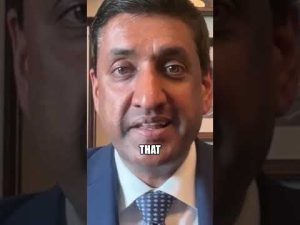In a curious twist of fate, it appears that Democrats are grappling with their own fears and misgivings in light of the possibility of a Donald Trump resurgence in the White House. According to recent discussions within Joe Biden’s inner circle, there is a growing debate about whether to issue preemptive pardons for a range of current and former public officials. The contention is that a return of Trump would mean a weaponized justice department bent on political vindication, targeting those within the Biden administration. While this may sound like a plot twist in a political thriller, it raises a few eyebrows and questions about accountability and fairness.
This internal debate among Democratic leaders raises a fundamental question: Is the fear of being hunted down justified, or is it simply a reflection of their own past actions? It is worth noting that it was the Democratic Party that initiated prosecutions against various individuals they deemed undesirable. From targeting former President Trump himself to going after pro-lifers and conservative parents who dared challenge school policies, it seems that the left firmly established the practice of using governmental power for political purposes. Their actions suggest a willingness to leverage legal mechanisms not for justice, but for political gain.
Furthermore, the notion of preemptive pardons seems to imbue these officials with an air of guilt before any charges are even levied. It sets a troubling precedent where the mere fear of political retaliation drives individuals to seek immunity before any wrongdoing is ever substantiated. If these officials are truly innocent, why should they need preemptive pardons? Shouldn’t trust in the justice system be robust enough to stand against perceived political vendettas? This approach may not only undermine the rule of law but also further erode the public’s confidence in our legal institutions.
Let’s consider a hypothetical scenario: Imagine a world where Democrats preemptively pardon themselves out of fear, only to find that they were never the targets of any investigations. The irony would be rich. A party that once positioned itself as the defender of justice could be seen as abandoning their principles out of sheer paranoia, creating a narrative of victims rather than stewards of the law. It could inevitably lead to a loss of credibility that might resonate well beyond their current political struggle.
In conclusion, rather than cowering behind the prospect of pardons, Democrats might want to take a hard look at their approach to governance. After all, the use of political power to intimidate or punish opponents can lead to a cycle of retaliatory politics, further dividing an already fragmented political landscape. Shouldn’t the focus be on restoring faith in democratic processes rather than clinging to a safety net that may only serve to implicate them further? The issue at hand goes beyond mere pardons; it is about integrity, accountability, and the principles that should guide any democratic society.







